During Commons exchanges, Defence Committee Chair Tanmanjeet Singh Dhesi pressed Defence Secretary John Healey on how the UK is helping to align negotiations with concrete pressure on Russia.
Dhesi said: “Recent Russian attacks across 14 different regions of Ukraine are not actions of peace. Words and actions must align, and it is abundantly clear that both from President Putin present a threat to us all. With such drastic escalation of Putin’s violence running concurrently with peace negotiations, along with Putin’s false reframing of his invasion as some sort of reaction to a Western-backed coup, can my right hon. Friend the Secretary of State shed further light on what levers he has pulled to help enable a peaceful outcome?”
Healey responded by framing the UK’s approach as one of simultaneous military, economic and diplomatic pressure. “It is a truism that peace is secured through strength, and our task in countries such as the UK that strongly support Ukraine is to put it in the strongest possible position on the battlefield and at any negotiating table,” he told MPs.
That meant, he said, “stepping up military support for Ukraine now, which we are doing, and will do further at next week’s UDCG meeting that I will co-chair.” He added that the Government was also “stepping up economic pressure on Putin, which the House will have a chance to hear more about — the Foreign Secretary will announce further measures soon.”
Healey linked this to longer-term planning: “It also means stepping up our preparations for securing any peace for the long term if Trump can help lead negotiations that will lead to a ceasefire and a peace agreement. That is the way that we support Ukraine now, and it is how we can help reinforce the steps towards the possibility of peace tomorrow.”
The Defence Secretary also acknowledged tributes to Admiral Sir Tony Radakin on his final day as Chief of the Defence Staff. “I say to my hon. Friend the Chair of the Defence Committee and to the Opposition spokesman, the hon. Member for South Suffolk (James Cartlidge), that I will ensure tomorrow that Admiral Radakin is aware of the kind comments from both sides of the House. I know that he will appreciate them,” Healey said.


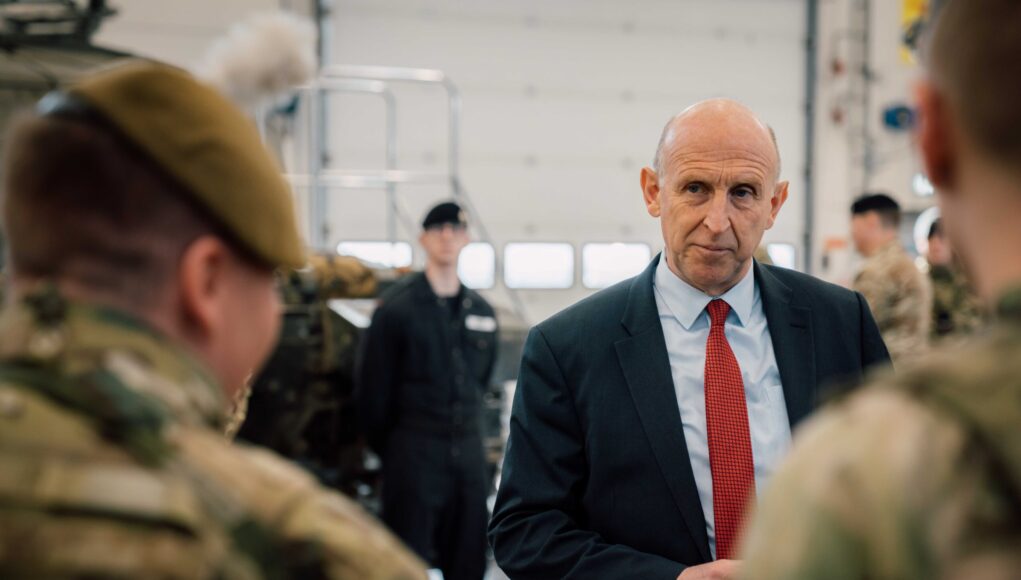
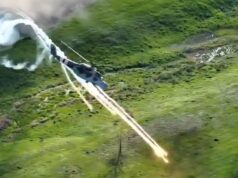
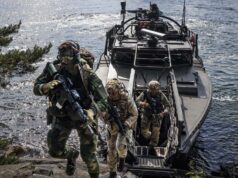
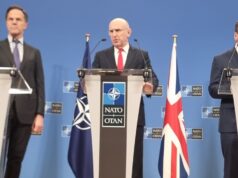
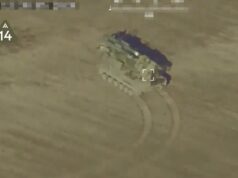
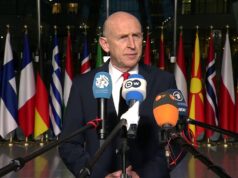
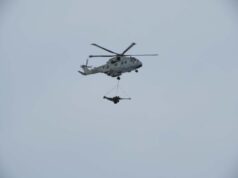

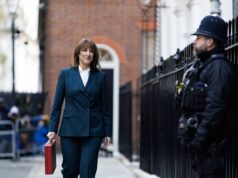
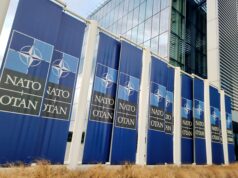

Peace through economic leverage:
‘Russia would lose some $160 billion over a year if oil prices averaged $45 per barrel’
Central Bank Governor Elvira Nabiullina
And through conventional deterrence as set out in the 2025 SDR.
I sometimes wonder if Britain doubling our conventional defence spending would be enough to put pressure on Russia not to keep pressing West. Possibly if France and Germany followed. I look forward to the new DIP which should tell us how much we actually spend on conventional capability. I’m willing to bet it won’t be that far North of 1% of GDP.
The Defence Industrial Strategy is to be launched next week, according to a MOD teaser (called Major skills boost at the heart of transformative new Defence Industrial Strategy). Certainly worth a look.
FM Montgomery had a picture of Rommel on the wall of his caravan on the basis of ‘Know your enemy’
Russia is a land power. They view the capabilities of others through that prism: ‘How many divisions does the Pope have’.
We don’t have any armoured divisions.
We used to….when there was the Long Peace in Europe 1945-2014.
We know what to do. We’ve done it before. It works.
you certainly couldn’t blame the USA if they pulled out of nato, the europeans are clearly trying to provoke russia, and all this, after the west broke it’s word to russia nato would not be allowed to spread eastwards
I think that is Cobblers.
Where is the document stating that NATO would not spread eastward? When did Gorbachev and NATO sign that?
And if Eastern European countries, free of the Russian yoke, decided they wanted western freedoms and values, who is Russia to say no. And why should “the West” refuse them?
Can I suggest in reality it is Russia is trying to provoke the West? Seeming as Russia tried to decapitate Ukraine in 2022?
And are you Russian, Chinese, or a Bot? Considering your lack of punctuation, and use of the words “the Europeans” which suggests you yourself are not?
Daniele – google ‘Not One Inch’ – there is some substance to that story.
‘Zoellick vividly recalls the White House meeting he attended nearly three decades ago in which Bush asked Gorbachev if he agreed with the Conference on Security and Cooperation in Europe principle that nations are free to ally with others as they see fit. When Gorbachev said yes, he says, the Soviet leader’s “own colleagues at the table visibly separated themselves.”
The Helsinki Final Act signed by the USSR, to which Russia is the successor member, guarantees the sovereign rights of signatories to make their own alliances.
and that’s fine, but the question is is nato free to make it’s own alliances, just because somebody wants to join a golf club doesn’t obligate the other members to allow them to join
do a search on ‘nsarchive, what gorbachev heard’
Okay.
i never said there was a document, only that they were given assurances, do a search on ‘nsarchive, what gorbachev heard’, then come back if you’ve got the courage, you’ve clearly been gaslighted
the freedom of european country’s to want to join nato isn’t the issue, it’s the west breaking their word that is, so i suggest the reality is, you need to rethink everything the west has told you about this conflict
and no, you don’t have to be russian, chinese, or a bot, you just have to think for yourself, all you’ve done is repeat the west’s tropes for justifying their alligning with ukraine, and it’s always useful to remember punctuation isn’t an indicator of intelliegnce, probably more an indicator of pedantry
Russia will eventually collapse, maybe not in the same way that the soviet union collapsed but it will collapse. People don’t get that Russia isn’t really a single country but rather a federation made up of 86 separate republics, provinces, territories, and districts controlled from and by Moscow, all the wealth and all of the poor sods fighting in Ukraine come from these areas. There was a referendum held in Russian regions and five of those voted heavily in favour of independence from Russia/Moscow, these regions include Koenigsberg, Ingria, Siberia, Kuban and the Urals, if/when things go badly in Ukraine for Moscow/Russia and they will go badly whether trump wants them to or not, then it is only a matter of time before Russia as we know it will cease to exist
i agree, but only in the same way that all countries eventually collapse, and in my opinion, the ukraine is far more likely to collapse before russia, poland clearly has it’s eye on eastern galacia, you couldn’t blame moldova or romania for eyeing up odessa either, that’s assuming the russian’s don’t get there first, and it’s hard to believe slovakia and hungary wouldn’t want a nibble of carpathia
and if this does break out into a war with the west, what chance germany won’t take an opportunity to bag prussia back into the fold, many scores will be settled, europe will not look the same after
Russia will eventually collapse, maybe not in the same way that the soviet union collapsed but it will collapse. People don’t get that Russia isn’t really a single country but rather a federation made up of 86 separate republics, provinces, territories, and districts controlled from and by Moscow, all the wealth and all of the poor sods fighting in Ukraine come from these areas. There was a referendum held in Russian regions and five of those voted heavily in favour of independence from Russia/Moscow, these regions include Koenigsberg, Ingria, Siberia, Kuban and the Urals, if/when things go badly in Ukraine for Moscow/Russia and they will go badly whether trump wants them to or not, then it is only a matter of time before Russia as we know it will cease to exist
Yes, and the increase of defense spending is the rest of it. Since the long west border of Russia is impossible to defend, Russia will now face the difficult situation of maintaining a large standing army, with defense budget share of GDP between 10 and 15% against our 5%. A similar situation led to the collaps of Soviet union. So the real issue is not really Russia, it is what will China do of Russia and what we want to do about it.
I’m not sure how China would benefit from the collapse of Russia other than gaining Outer Manchuria. Russia probably doesn’t have much left in the way of oil and gas reserves but there are other minerals that China could exploit bringing it into competition with America